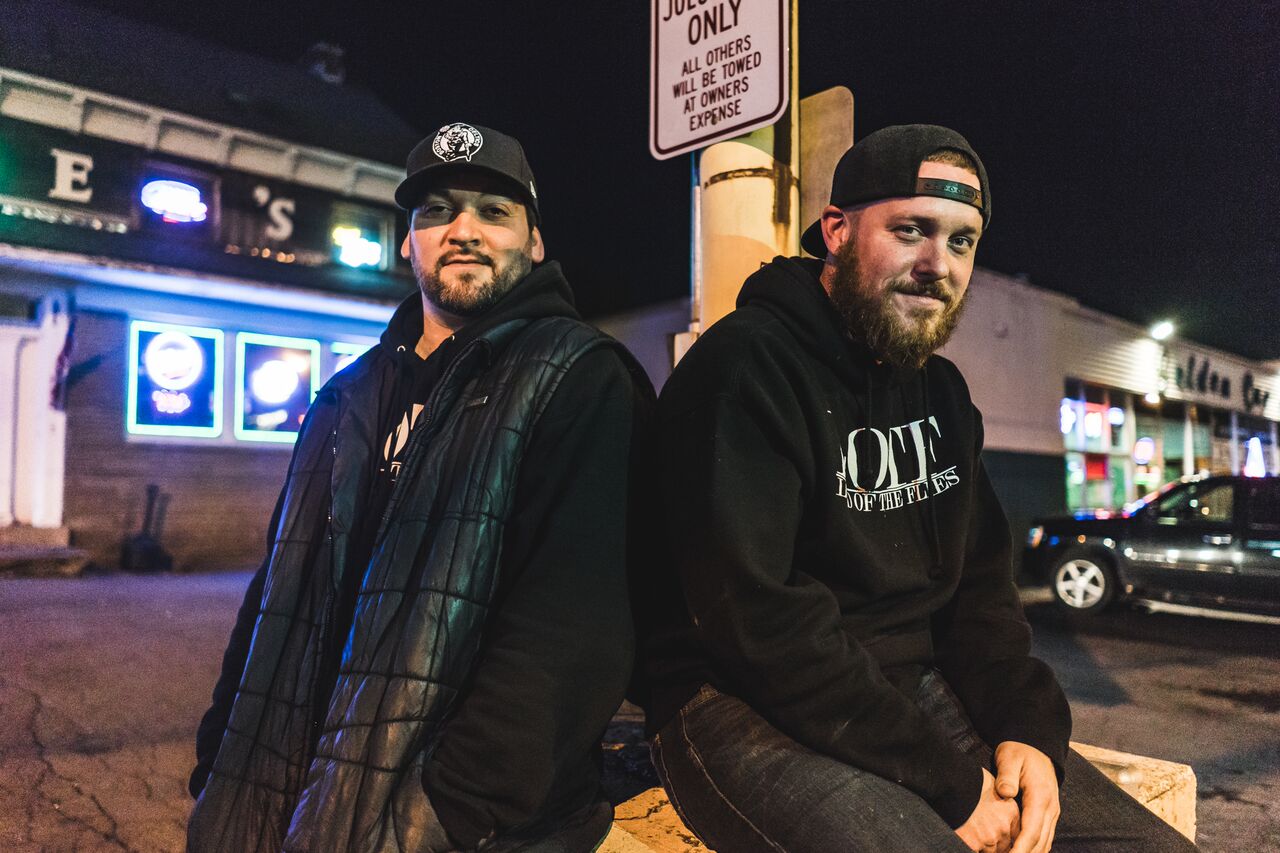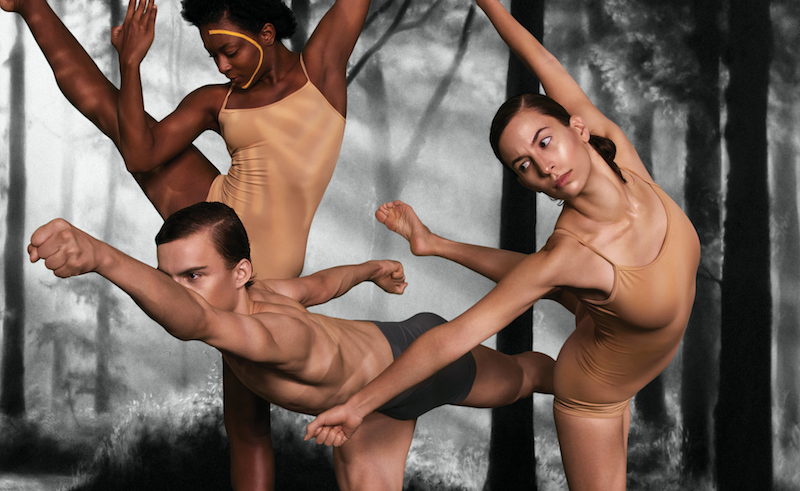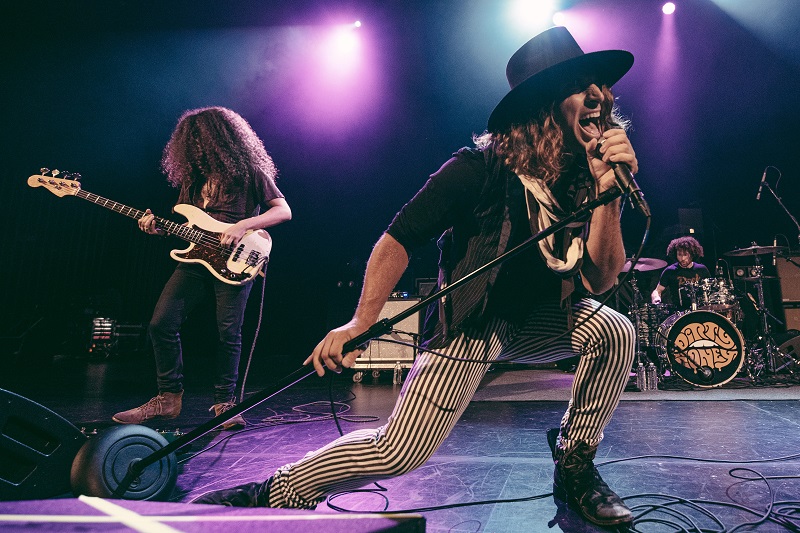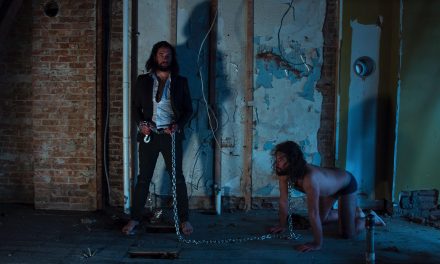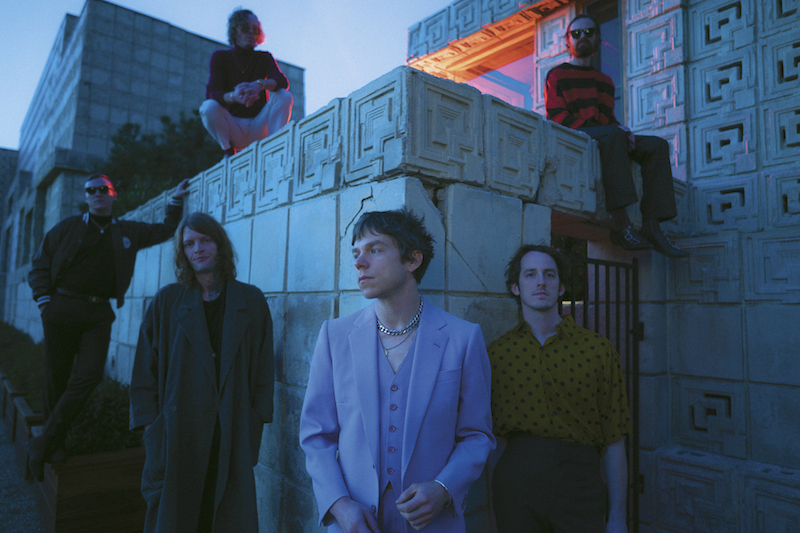This article first appeared in The Alt on December 6, 2017.
Central Avenue in Albany is bathed in the sheen of a full moon and the glow of the sea of neon signs that loom over the thoroughfare on this cold but crisp Saturday evening in December.
The sound of Queen’s “I Want to Break Free” pulses through the front door and windows of Joe’s Grill, a gritty roadhouse made of stone and wooden shingles. Inside a crowd of working-class 40-somethings chat and joke, glasses clink.
“I’m kind of introverted,” says Rick Allen, AKA Shyste, an MC who has served as a staple of the 518 hip hop scene for over two decades. “I like this kind of spot. It’s sort of an old man bar. It’s a nice hole in the wall. I can come here with my thoughts without a ton of people. People know me here. They call me Shyste, but I don’t think a lot of them even know I rap.” Behind him an old electronic dart board flashes the top scores—“Shyste” appears in the top ten in a bold, glowing electronic font.
Brendan Paulsen, AKA Abs01ute, a local hip hop producer who has worked with artists like Giant Gorilla Dog Thing and Ben Grimm, sits across from Allen at a faux wood-paneled table. “We met here while we were putting this thing together. We traded ideas and spent a lot of time here putting in work,” says Paulsen. Both men sport black hoodies that read “LOTF Lord of the Flies,” black baseball caps, dark jeans and black sneakers. Their faces are covered in neatly trimmed beards. They appear to be operating in a creative symbiosis. And after four years of working together on Lord of the Flys a 17-track concept album based on the 1954 Pulitzer Prize-winning novel Lord of the Flies by William Golding. The album combines Allen’s love for ‘90s underground hip-hop with Paulsen’s intricate production skills.
Both men knew each other from hip hop shows and Paulsen invited Allen to collaborate. They both thought it would be one song. They were mistaken. Their collaboration soon exploded.
“I’d make a beat and send it to him,” says Paulsen.
“His music is very dramatic and theatrical which is great for me because I’m very visual,” says Allen. “I’m more like a creative writer when it comes to rap music. He gave me a landscape to look at and I literally just listened to what he gave me and picked up the vibe. I don’t just drop the same thing every time. I look forward to listening to music and adapt to that.”
Paulsen’s production style is based on his underground influences but this particular project found him adding more dramatic nuances. “For this specific album, I spent a lot of time searching for certain samples from ‘60s Japanese pop records. I found them on YouTube—I found this very obscure collection that really spoke to me and that was the inspiration for the first chunk of songs we did. I’d send him a couple and we’d mess around with it until we had three or four songs. When we started we were talking about keeping this all under the radar and not pushing it but it got to the point where it grew and it got to where we had 20 possible songs.”
While both men differ in age, with Shyste being the more seasoned musician, they do share a strikingly similar past. Both men grew up in Albany, both attended the Catholic high school Bishop Maginn and both left the area briefly to further their careers in hip hop, only to return to ply their trade in their hometown.

Allen began rapping at 15 and quickly found himself working with local producers. “I realized I was really good at it and made the choice to focus on that as opposed to college, a job, stuff like that. I ended up, before I was even 21, down in South Beach Miami working on a record down there but I didn’t like scene at all. It was not my thing. So I passed on that, came back here and got right into doing the local thing, doing shows and stuff. I went to the school of breakbeats.”
Paulsen recalls his high school friend showing him a new keyboard and how quickly his circle began recording tracks almost daily. “I grew up on Whitehall Rd. 12209,” Paulsen chuckles. “My brother was a big fan of hip hop—stuff from the early ‘90s mainstream and underground. In eighth grade my buddy got keyboard and we started making beats and recording on karaoke machines. We’d make songs every night and show them to each other the next day. From there I went to SUNY Oneonta for music, I got a degree there and then started politicking with a bunch other local guys.”
Paulsen also worked in a studio in NYC and was able to shadow producers as they worked on major albums. But still Paulsen returned home.

Both men work day jobs. Paulsen is bartender and Allen works in screen printing. They both have a workmanlike approach to music—turning out music regularly with minimal promotion. But they’ve decided to change that approach this time around. They’ve made sure Lord of the Flys is on all the major streaming services, they’ve shot a number of videos, and Shyste plans to tour behind the album early next year. “I just don’t spend time on marketing and promotion,” says Allen. “I normally drop three albums a year—drop it and onto the next one but I’m so confident in the quality of this one that we decided to put the breaks on and concentrate on promotion.”
Neither man has done much work in the studio since finishing the album. They both are laser-focused on getting their concept album heard by as many people as possible.
That isn’t to say they think they’ll make it big or that they are hungry for stardom. Both men make it clear they have long come to terms with the idea that they make music for themselves first and that they are unwilling to compromise to meet industry standards by mimicking the work of popular mainstream artists.

“It took me going to the city to understand where I should be,” says Paulsen. While I could have stayed down there longer if I was more financially stable, home is where I should be.”
“I gauge my success by my personal achievements, what anyone thinks about what I do does not matter to me,” says Allen. “If someone is like ‘You’re not famous or nothing!’ I’m not really concerned what everyone thinks about what I’m doing. I have a unique perspective I inherently want to share with people for some reason.”
As he speaks he becomes increasingly focused, more forthcoming than usual. He hunkers down, his shoulders up. Some regulars come in to say hello but he’s honed in. “Come on Eileen” by Dexy’s Midnight Runners blasts over the jukebox giving way to Blue Suede’s “Hooked on a Feeling.” The “ooga chakas” rumble across the room but Allen remains focused.
“I drove myself nuts for years trying to measure myself up to what everyone’s doing or what people were telling me I was supposed to be doing. Thankfully I had a moment of clarity one day and asked myself ‘Why do I really do this?’ I do it for myself. I met a lot of rich and famous people they are miserable. These people are not happy. Since I’ve changed my perspective on things I’ve been much more happy and calm and it’s much more gratifying. To me, if someone I’ve never met in Denver or something texts me saying that the stuff you say is super powerful and helps me out that means much more to me than being on MTV. A lot of people would say ‘Bullshit!’ but it’s not bullshit and I wouldn’t be here if it was,” Allen concludes.
Paulsen is right there with him. “Being unique is personally extremely important to me. Sure we all rub off on each, there will always be some crossover but you’ve got producers who sell beats online market their stuff as like “Jay-Z” type beats, why? Make a “you” beat. I’m a big proponent of trying to be different even if you fail at it. And it’s hard for people to do that because it’s scary and they are afraid of what other people will think.”
Allen pulls his Celtics hat down a little tighter over his head and leans in. “I’ve had people say ‘We think you’re great, super talented but you should do something like so and so.’ and when I say ‘No, I don’t want to do something like so and so they are shocked, like ‘Don’t you know what so and so is doing right now? Do you not want a CD and to be on the radio?’ It’s a different mental attitude. If you don’t do it for money and fame it’s very shocking to some people.”
Paulsen nods his head the cadence of Allen’s speech and then chimes in. “The beauty of art is being different, being yourself and it all stems from that. I don’t see it stemming from anywhere else. It’s that simple.”
Allen smiles, his eyes widen.
“I pride myself on not being successful.”

